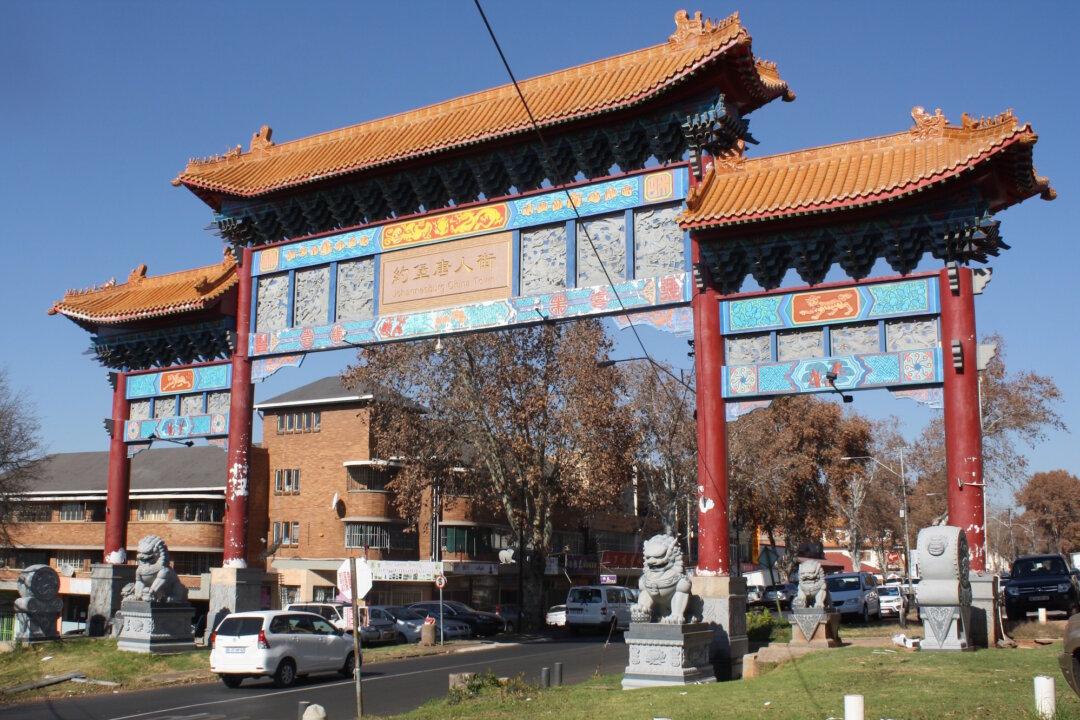JOHANNESBURG, South Africa—The Chinese immigrants trying to survive in Johannesburg’s Chinatown these days are worried about their dwindling profits.
Inside the Shun De restaurant, tables are piled with steaming Cantonese dishes, from cha siu bao, or soft buns filled with barbecued pork, to lo bak go, or turnip cakes, to the ubiquitous roast duck. Patrons are enfolded in chairs draped with shiny scarlet material embroidered with gold patterns.





